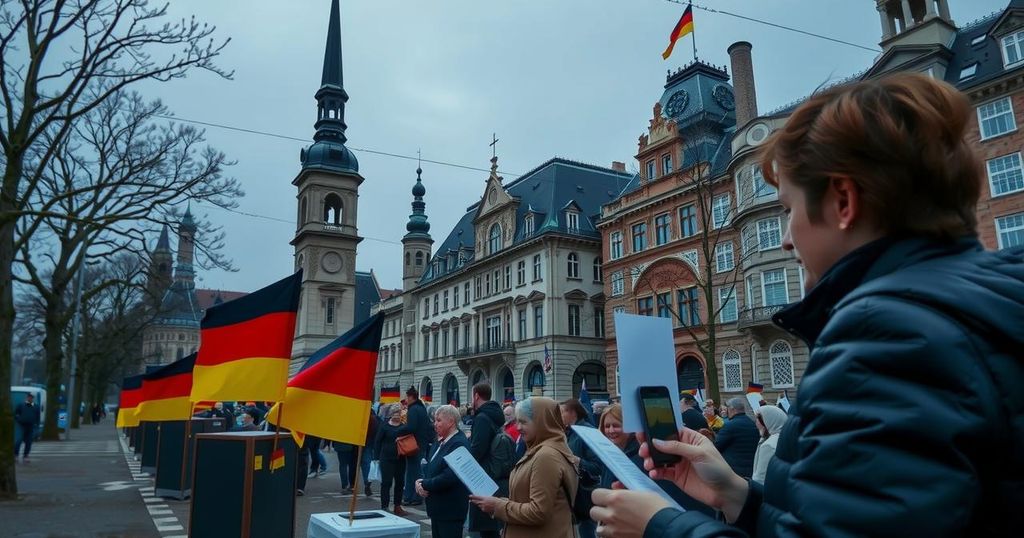Germany to Hold Snap Elections on February 23 Amid Political Turmoil

Germany will hold snap elections on February 23, 2024, after Chancellor Olaf Scholz’s coalition collapsed. The election date results from a compromise among major parties amidst growing economic challenges and geopolitical instability. Scholz faces a confidence vote on December 16, expected to lead to government dissolution. The CDU/CSU leads in polls, but alliances will be crucial to form a governing majority, with elections taking place in a politically fragmented environment.
Germany is poised to conduct snap elections on February 23, 2024, following the dissolution of Chancellor Olaf Scholz’s three-party coalition led by the Social Democratic Party (SPD). This decision was reached after discussions among the major parties, serving as a compromise between the conservative opposition, which advocated for a January election, and Chancellor Scholz, who favored mid-March for adequate preparation. The timeline is contingent on an impending confidence vote set for December 16, where Scholz is expected to lose, thereby initiating the election process. President Frank-Walter Steinmeier supports this timeline and has emphasized the need for cooperation among mainstream parties to uphold Germany’s internal and external stability during this transitional period. The agreement among the SPD and the opposition, particularly the Christian Democratic Union (CDU) and its Bavarian ally the Christian Social Union (CSU), is crucial for restoring political stability as the nation faces economic challenges exacerbated by numerous global factors. Germany’s economy contends with inflation, the ongoing war in Ukraine, and strained geopolitical relations following Donald Trump’s anticipated return to the U.S. presidency. Despite the CDU/CSU alliance currently leading in polls at 32 percent, they may require an alliance with the SPD to form a governing majority, as Scholz’s party is polling at 15.5 percent. Moreover, with the rise of the far-right Alternative for Germany (AfD) polling near 20 percent, mainstream parties are under pressure to navigate the dynamics of an increasingly fragmented political landscape. Challenges are further compounded by the winter timing of the elections, which may discourage voter engagement typically seen in warmer months. As political campaigns commence under these conditions, concerns about leadership and party coherence amid economic uncertainty remain paramount for Germany’s future governance.
The upcoming snap elections in Germany arise from Chancellor Olaf Scholz’s coalition government, which has recently collapsed due to internal conflicts primarily regarding economic management, notably following the removal of Finance Minister Christian Lindner. This political upheaval occurs against a backdrop of significant economic strain faced by Germany, identifiable in trends such as inflation and diminishing growth forecasts, and it coincides with potential shifts in global leadership, particularly with the approaching inauguration of Donald Trump.
In summary, Germany’s snap elections on February 23, 2024, represent a critical moment for the nation’s political stability, following the collapse of Chancellor Scholz’s coalition. Despite the challenges posed by winter campaigning and economic instability, the outcome of this election could reshape not only German governance but also its position within the European Union and on the global stage. As parties mobilize for the elections, strategies will need to address voter concerns amid a turbulent political climate.
Original Source: www.aljazeera.com






